No matter how big or small your garden is, slugs and snails are you worst enemy. These insatiable pests can consume several times their own body weight in food in one day. That means a lot of damage to your plants. Snail and slugs can seem to appear out of nowhere, especially when the weather is mild and damp. So it’s little wonder we’ve tried many different ways to control them.
50 years ago most gardeners kept a drum of salt at the ready to pour on the poor, offending creatures as they appeared and salt was sprinkled around newly planted seedlings. And traditional slug pellets, while extremely effective, can affect local wildlife who eat the poisoned slugs and snails. With a more natural focus to gardening becoming popular, more of us are turning to natural alternatives to pest repellents. Today we are going to list the 19 best natural ways to prevent snails and slugs in your garden.
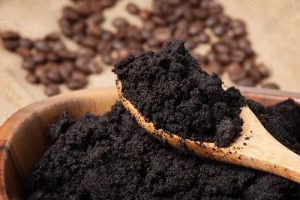
1: Coffee Grounds
If you love coffee, coffee grounds might be your best bet when it comes to protecting your plants and deterring slugs and snails. Slugs and snails, unlike us, hate coffee. And coffee grounds also add nutrients to your soil. Coffee grounds are one of the best and most recommended ways to deter slugs and snails from your garden.
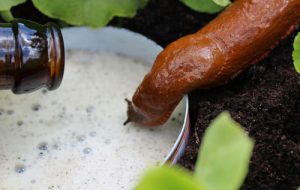
2: Beer Trap
Apparently, slugs love beer! And if you don’t mind killing the slugs and snails in your garden, a beer trap might be your best option. Sink a butter or yoghurt tub into the ground with the rim at soil level. Fill this with beer to create the beer trap. The slugs and snails are attracted, fall in and drown. Make sure you use a tub that is deep enough that the slugs or snails can’t crawl out again. This is obviously not a great option, however, if you have pets who may get into the tub and drink the beer before your pests!
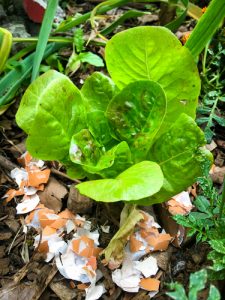
3: Egg Shells
Egg shells are a super effective option when you spread them as a barrier ring around plants. If you live near a beach, you can also use crushed up sea shells. Broken egg shells and sea shells have sharp edges that hurt snails and slugs as they try to crawl over them. The shells will eventually break down and add nutrients to your soil. However, you will need to eat a to of eggs or find a lot of sea shells to keep up the needs of your garden and pest control.
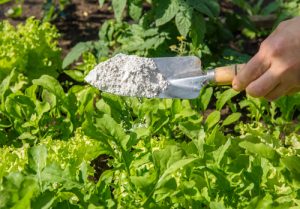
4: Diatomaceous Earth (DE)
Diatomaceous earth is an incredibly popular pest deterrent around the world. DE is finely ground fossil remain of freshwater prehistoric diatoms. Diatoms are microscopic green algae with a silica-based shell. It is used in various grades to kill bedbugs, cockroaches and even internal parasites in food grade DE. Like egg and seashells, diatomaceous earth has sharp edges. For slugs and snails it is like trying to walk barefoot over glass. However, you will need to reapply this soil topping frequently as it becomes useless after the rain.
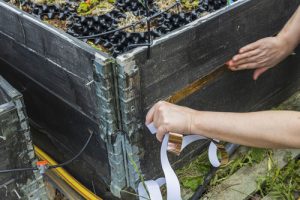
5: Copper Tape
Slugs and snails can’t cross copper. This is why some people use copper tape as a barrier in their garden, arrange it in a ring around individual plants or in a ring around your pot plants, just below the rim. You can also get copper impregnated mats too, to stand pots on. However, if plants grow leaves over the barrier or touch another plant, snails can use these as a bridge.
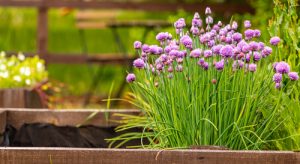
6: Slug Repellent/Attractive Plants
Some plants actively repel most slugs and snails. These can have a deterrent effect when planted alongside your other plants, or used to make an extract. These plants include:
Garlic
Many gardeners swear by garlic as a natural pest control.
Chives
Like garlic, many gardeners swear by chives and tie the leaves around vulnerable plants.
Chamomile Seedlings
Slugs and snails love chamomile seedlings. You can plant these and wait in ambush with a jar to move the snails and slugs out of your garden.
Herbs
Sage, rosemary, parsley, and thyme are all beautiful additions to your garden and also deter snails. Plant them in a border around your garden and between vulnerable plants to ward of slugs and snails. It also means you get a beautiful, additional herb garden to use in your cooking!
Lavender, while not a herb, works in a similar way.
Mint
Mint is a herb that deserves its own section. Like the herbs above, it deters slugs and snails and makes a lovely addition to your garden. Mint does grow very wild though, so you will need to cut it back. Add these mint trimmings to your soil to further deter slugs and snails. This will also add the sweet smell of mint to your garden beds to blend beautifully with your flowers.
7: Recycled Wool Waste
Wool waste is a by-product of the wool manufacturing process. This is then turned into pellets that you can spread around your plants as a barrier. These pellets swell up and reveal nasty fibres that are a natural irritant to slugs and snails. These pellets degrade over time and act as plant food. It is effective when protecting newly planted seedlings and perennials.
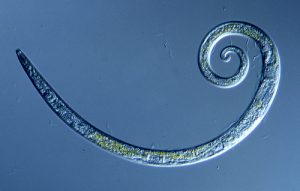
8: Nematodes
A nematode is a type of microscopic worm. This is a form of biological control for slugs and snails, and is effective in small gardens. You essentially water the garden with a solution of water and nematodes. Nematodes penetrate the slug, infect it, and kill it. While this is not exactly a pleasant through but it is organic and effective.
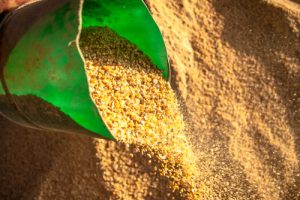
9: Wheat Bran/Corn Bran
Small piles and rings of wheat or corn bran can be sprinkled around plants. When slugs and snails eat the bran it causes desiccation and death. This is a totally organic option and safe if wildlife eat the dead pest, they get a little extra nutrition. However you will need to replenish it regularly after rainy weather.
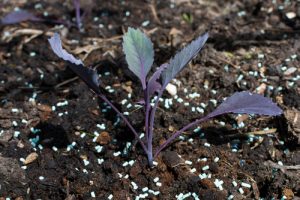
Follow the above tips to keep your garden free of snails and slugs
Aumann’s Garden Supplies covers a wide range of mulch, top soils and pest deterrent plants to help with your gardening needs. Explore our range today, come in store, or contact us for more help!

